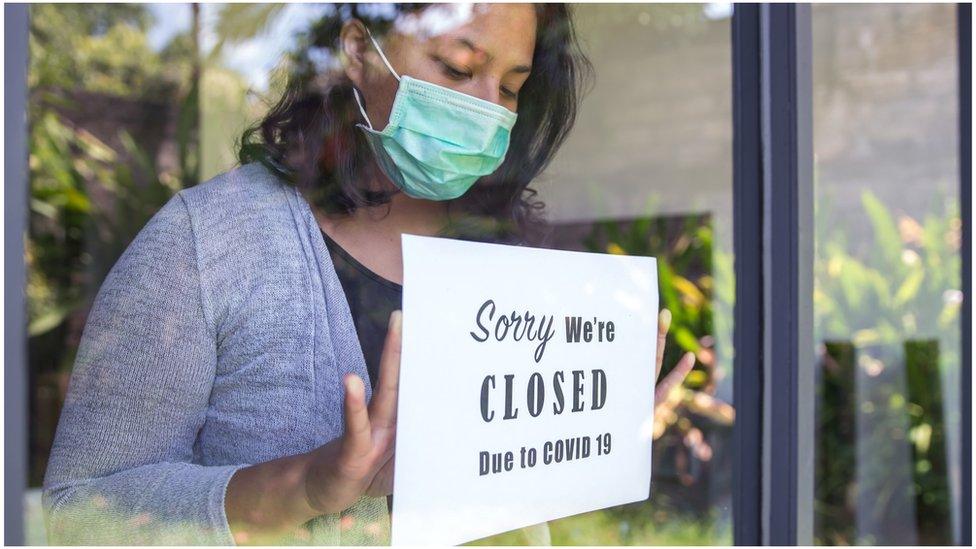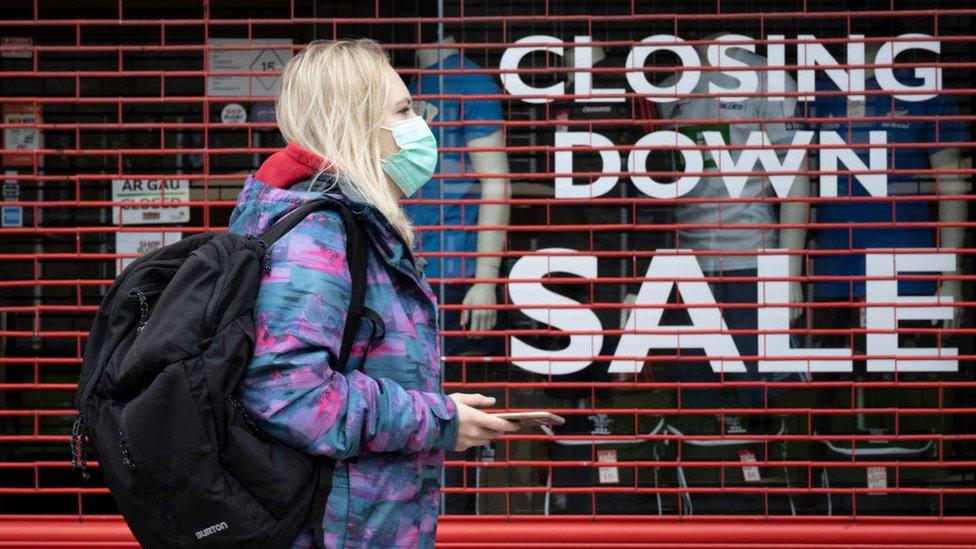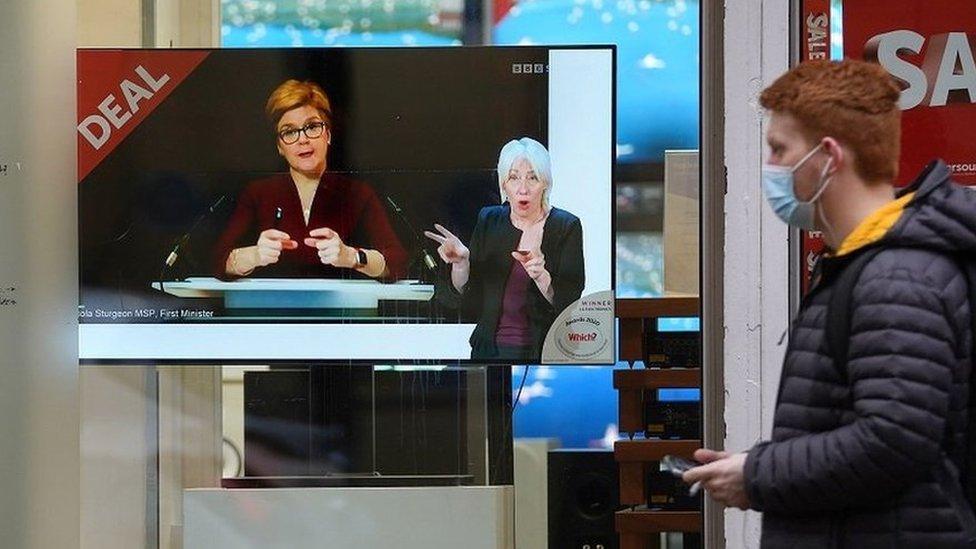Audit Scotland: Watchdog concern over where £5bn Covid funds went
- Published

A detailed analysis of where almost £5bn of Covid business funding went is not possible due to gaps in data, a spending watchdog has found.
The Scottish government provided £4.4bn in grants and business rates relief between the start of the pandemic and October last year.
A further £375m was announced following the emergence of Omicron last winter.
The government said the speed and scale of the roll out helped to safeguard thousands of job and businesses.
But Audit Scotland was unable to determine where all the money ended up.
It also identified gaps in information about how quickly applicants received funding.
Responding to the report, which found the quality and completeness of the data collected by the government varied, opposition politicians accused ministers of a lack of transparency.
'Exceptional circumstances'
Auditor General Stephen Boyle said: "These business support schemes were administered at pace in exceptional circumstances. But knowing where the money went matters.
"To get future policy development and delivery right, it will be important for the Scottish government to fully understand how funding was used to support specific businesses and groups over the last two years of the pandemic."
The report found:
The Scottish government does not have an analysis of the total amounts paid out to different sectors
For sector specific funding administered by national organisations, such as Scottish Enterprise, about 20% of payments cannot currently be matched to council areas
And information to enable wider analysis of how funding supported specific groups, such as female-owned businesses, is not available from centrally held data.
William Moyes, chairman of the Accounts Commission, said: "Councils' fraud arrangements are generally robust, but they were heavily relied upon to ensure businesses were eligible for funding during the pandemic.
"Councils will need to continue to work closely with the Scottish government to ensure a better picture emerges of how money was distributed."

Economy Secretary Kate Forbes said direct support was provided to more than 4,000 businesses and over 5,000 self-employed people who were facing hardship during the pandemic but were ineligible for UK government funding.
She said the schemes were established in a "unique and challenging context" but that "despite the speed and scale of our response, we were able to work closely with industry, our enterprise agencies and local authorities".
She continued: "This helped to ensure the delivery of the business support funding was a shared endeavour and minimised risk and fraud."
Last year the Scottish government estimated that of the £1.6bn distributed by councils, between £16m to £32m, external was at risk of fraud.
Ms Forbes said any lessons highlighted by the report would be learned, but highlighted that the decisions the government took "ensured lifeline support reached key businesses promptly" and that the economy continued to grow despite restrictions.
'Mired in secrecy'
Scottish Conservative finance spokeswoman Liz Smith acknowledged the speed with which the money had to be released but said the report highlighted a "shocking lack of data" meant "enormous sums of public money were paid out" but "we don't properly know where it went".
Labour MSP Daniel Johnson said the Scottish government had "disdain for economic transparency", and that this spending was "mired in secrecy and confusion" which made it impossible to determine whether it was good value for taxpayers.


- Published29 December 2021

- Published22 December 2021
